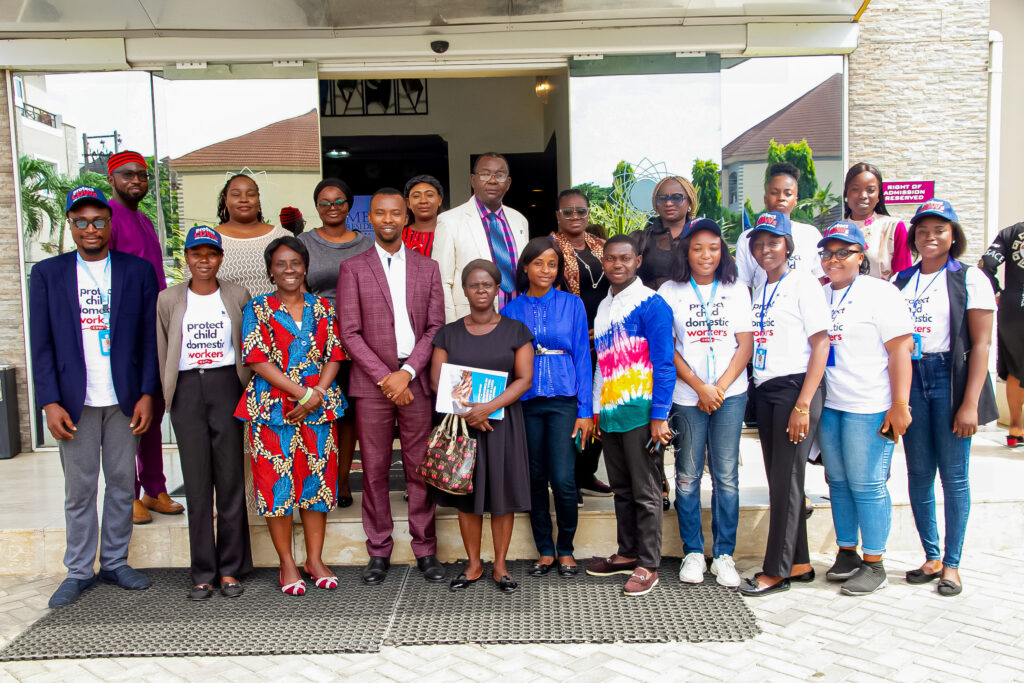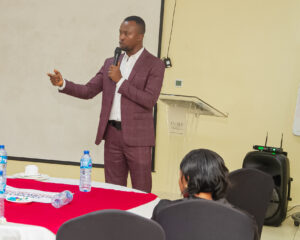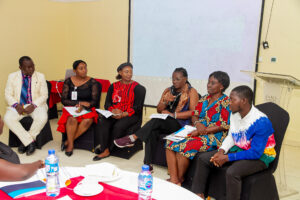DEVATOP ENGAGES STAKEHOLDERS TO ADDRESS EXPLOTATIVE CHILD DOMESTIC WORK IN LAGOS STATE.

Child Domestic Work (CDW) remains a pressing issue in Nigeria not just in Lagos State, affecting countless children and perpetuating cycles of poverty and exploitation. However, in recent efforts to confront this challenge, DEVATOP organized a policy dialogue meeting that brought together various stakeholders to delve into the issues surrounding child domestic labour.
The event, attended by government officials, policymakers, civil society representatives, community leaders, educators, and other stakeholders, provided a platform for in-depth discussions on the root causes, consequences, and potential interventions related to child domestic work. Through panel discussions, presentations, and interactive sessions, participants examined the socio-economic factors driving children into domestic labour, including poverty, lack of educational opportunities, and cultural norms.
 The Executive Director of DEVATOP, Mr. Joseph Osuigwe, and Chika Nwabeke, Program Advisor at Freedom Fund, extended goodwill messages as they welcomed participants to the policy dialogue on exploitative child domestic work in Lagos State. Mr. Osuigwe highlighted the support received from Freedom Fund, noting that over the past five months, with assistance from Freedom Fund and the U.S. Department of State under the Project “Protect Child Domestic Workers from Harm,” Devatop Centre for Africa Development, Caprights, and Street Project Initiative have been actively engaging community stakeholders, gatekeepers, and employers in championing the rights of child domestic workers. Mr Osuigwe also emphasised using the civic tech platform called TALKAM App: www.talkam.app and Caprights Hotline: 08000044444 to empower community members to report instances of child abuse.
The Executive Director of DEVATOP, Mr. Joseph Osuigwe, and Chika Nwabeke, Program Advisor at Freedom Fund, extended goodwill messages as they welcomed participants to the policy dialogue on exploitative child domestic work in Lagos State. Mr. Osuigwe highlighted the support received from Freedom Fund, noting that over the past five months, with assistance from Freedom Fund and the U.S. Department of State under the Project “Protect Child Domestic Workers from Harm,” Devatop Centre for Africa Development, Caprights, and Street Project Initiative have been actively engaging community stakeholders, gatekeepers, and employers in championing the rights of child domestic workers. Mr Osuigwe also emphasised using the civic tech platform called TALKAM App: www.talkam.app and Caprights Hotline: 08000044444 to empower community members to report instances of child abuse.
Peculiar Inana, DEVATOP’s M&E Lead in Lagos, shared insights into DEVATOP’s examination of existing policies regarding child domestic work (CDW). The primary objective of this undertaking was to systematically evaluate the legal and regulatory frameworks, policies, guidelines, and financial mechanisms relevant to CDW in Lagos. The resulting report provided a detailed analysis of the legal panorama surrounding CDW, with a specific focus on identifying areas for enhancement and offering actionable recommendations.
The ultimate goal of the report is to facilitate well-informed decision-making, advocate for policy reform, and improve the quality of life for child domestic workers in Lagos.
Further enriching the dialogue was a panel discussion featuring representatives from NAPTIP, CPN, Human Rights Commission, Education, and two child domestic workers. This panellist shed light on various perspectives and approaches to addressing exploitative child domestic work, emphasizing the importance of collaborative efforts across sectors and stakeholders.
